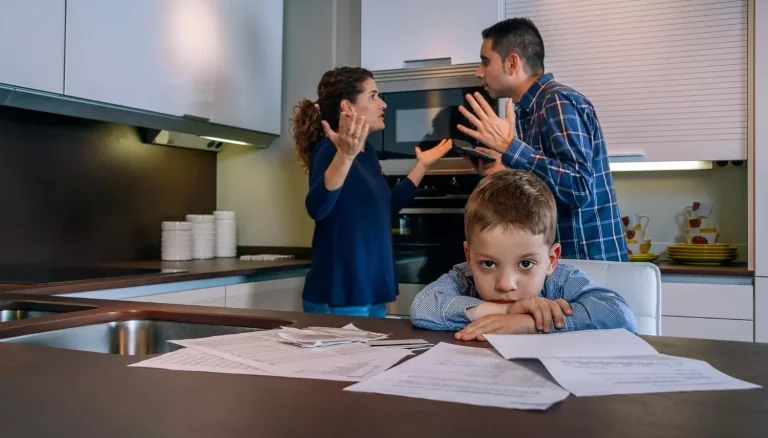Child Custody Mediation Checklist: Essential Guide
Have you ever wondered about the steps involved in child custody mediation? Our team at TheBostonDivorceLawyer has put together a helpful checklist to guide you through this important process. Learn more about how you can navigate child custody negotiations successfully with our expert tips.
From the point of view of effective child custody mediation, it is crucial to prioritize the best interest of the child, maintain open communication with the other party, and seek guidance from legal professionals when necessary.
(source: ‘The Child Custody Book: How to Protect Your Children and Win Your Case’ by James W. Stewart)
Agreement Terms
During my experience with child custody mediation, I’ve found it very important to establish agreement terms that both parties can stick to.
Let me explain, these terms usually cover important parts of the custody arrangement, like visitation schedules, decision-making duties, and child support. Having clear terms can help parents avoid future conflicts and misunderstandings. It’s important to keep the child’s best interests in mind, putting them above personal feelings or issues.
The agreement should include details like pick-up and drop-off times and how parents will communicate with each other. It might also have rules for resolving disputes or changing the agreement if things change later on. Come to think of it, both parents should be involved in creating these terms and should openly share any concerns or preferences.
Besides specific custody terms, parents might also discuss broader issues like co-parenting strategies and ways to support the child’s well-being. These talks can help parents work together better, which is good for the child’s emotional and mental health.
Parenting Plan
I recently learned that a parenting plan is a helpful tool that outlines how I’ll share the responsibilities of raising my child with my ex after our separation or divorce.
Come to think of it, this plan outlines key decisions like where the child will live, when they will be with each parent, and how they will be financially supported. It also covers how parents will communicate and make decisions about the child’s upbringing.
When going through child custody mediation, having a parenting plan is important. It sets clear rules and expectations for both parents and the child, reducing conflicts and confusion. So to speak, key considerations for a parenting plan include the child’s schedule (school, activities, holidays, and birthdays), communication methods, decision-making, and handling conflicts. Being flexible and willing to compromise is very important to ensure the plan works best for the child.
Communication
I’ve found that effective communication is crucial in child custody mediation.
Keeping it real, it’s important for both parents to clearly share their thoughts and feelings, and also listen to each other. Open and honest communication helps avoid misunderstandings and builds trust.
During custody mediation, use respectful language and avoid blaming the other parent. Focus on the child’s needs. Listening carefully is key. Pay close attention, ask questions to understand better, and acknowledge the other parent’s point of view.
Body language and tone of voice matter too. If you think about it, stay calm and composed, even if you disagree. Keeping eye contact and using a neutral tone shows empathy and understanding.
Good communication should also happen outside of mediation. Keep in touch, respond to messages, and stick to agreements made during mediation.
Effective communication in child custody mediation helps parents create a plan that’s best for their child. By actively listening, using respectful language, and keeping communication open, parents can work together better and find a good solution for their child.
Custody Schedule
In the context of what was mentioned during child custody mediation, I learned that a custody schedule is created to determine when each parent will have time with their child.
Come to think of it, this plan outlines the days and times each parent will spend with their child. The aim is to build a routine that keeps things steady and reliable for the child, considering the parents’ work and other commitments.
When making a custody schedule, think about the child’s school times, after-school activities, and any special needs. Also, consider each parent’s ability to take care of the child and their living situation.
Being flexible is important because circumstances can change. Let me explain, both parents need to be open to working together and making adjustments when needed. Good communication is very important to make sure the schedule fits everyone’s needs.
Sometimes, a mediator can help with the custody schedule discussions. A mediator can guide the conversation, focus on what’s best for the child, and help the parents find a workable solution.
Mediation Process
I’ve learned that mediation allows me to discuss and make decisions with the assistance of a neutral person.
Honestly, in child custody cases, mediation helps parents create a plan for their child without needing to go to court. The mediator is neutral and assists both parents in communicating and cooperating.
The mediation process begins by choosing a mediator and scheduling a meeting. During the session, both parents get a chance to express their wishes and listen to each other. The mediator ensures the conversation stays focused and that both parents have an opportunity to speak.
During mediation, parents will decide on important issues like the child’s living arrangements, visitation schedules, and decision-making responsibilities. To be fair, the mediator helps them come up with a plan that suits everyone.
Once both parents agree on a plan, it is written down and signed. This agreement is legally binding, meaning both parents must follow it. If changes are needed later, parents can return to mediation to update the agreement.
Mediation is a useful way for parents to reach an understanding about their child without going to court. It can save time and money, and it encourages parents to work together for their child’s well-being.
My Concluding Thoughts
Continuing from the last point in order to work through the various problems that may occur of child custody mediation successfully, it is very important to be prepared.
What TheBostonDivorceLawyers is being fans of is, by utilizing a comprehensive checklist that covers important aspects such as scheduling, documentation, and communication strategies, parents can approach the mediation process with clarity and focus. Following these guidelines can lead to a more efficient and amicable resolution for all parties involved.







